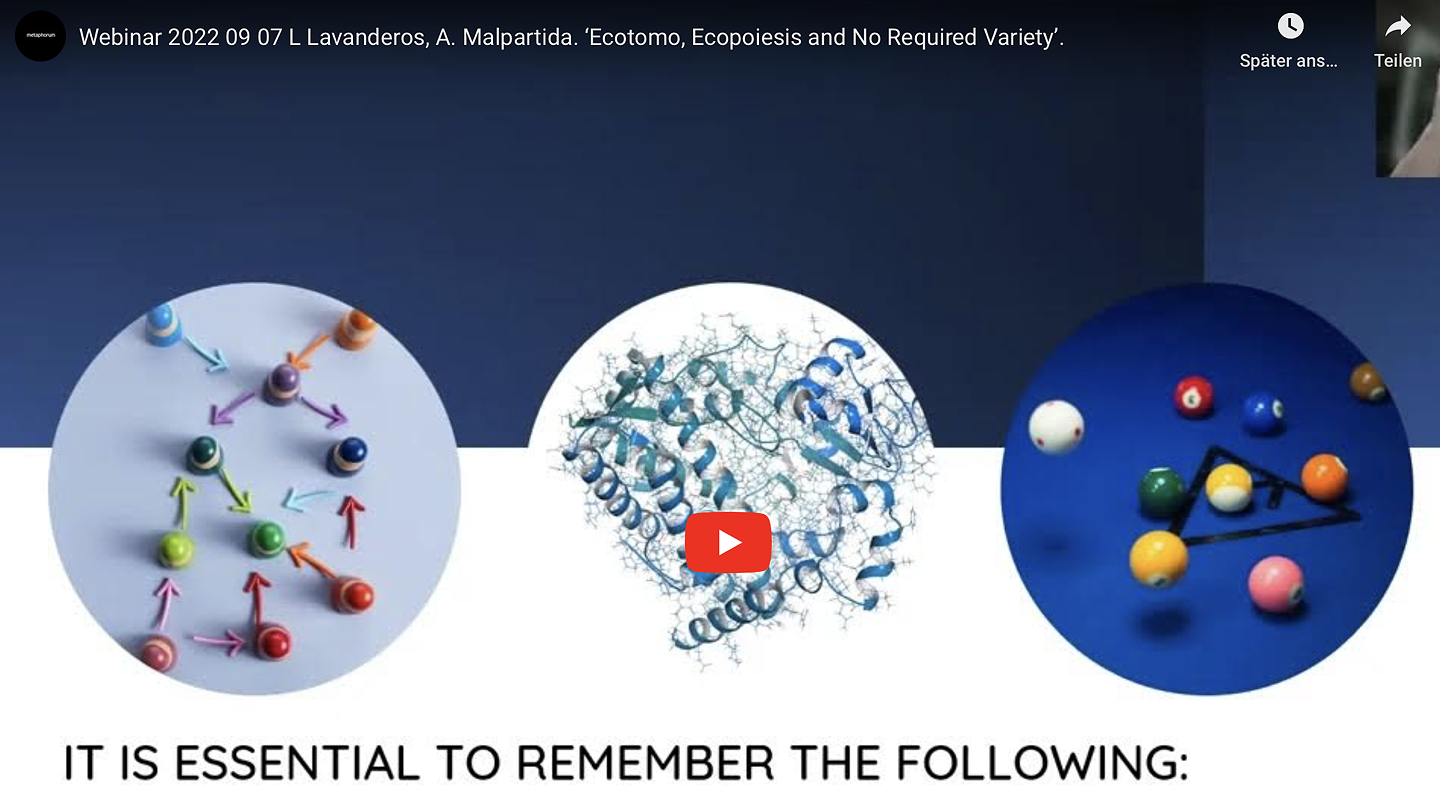
It is proposed that evolutionary processes in living units are fundamentally relational, and that they correlate with waste management or no required variety rather than entropy. The conservation of the culture-nature relationship that emerges as ecopoiesis is the relational viability of human organisation.
Speaker Bio
Leonardo Lavanderos is a Biologist, Doctor of Science from the University of Chile. He is currently Director of Innovation at the Center for Studies in Relational Theory and Knowledge Systems, and Professor at the Tec Business School in Monterrey, Mexico. He is co-responsible with the Technological Institute of Bolivia for the launch of the International Center for Research in Relational Cybernetics. He developed the relational theory of knowledge together with Dr. Alejandro Malpartida. He developed the Sustainability-based Systemic Relational Viability model for the coherence and congruence of relational networks. He created the concept of Strategic Relay Process Intelligence (Relational Systems). From this conceptual battery, multiple consultancies were developed at a national and international level. In the field of Public Management, he designed the bases of the National Territorial Information System. He developed and designed the KAWSAY System for the exchange of varieties in networks. He designed and simulated the Campo de Hielo Sur Division for the time of the conflict during the Government of Eduardo Frei Ruiz Tagle. He held the position of Scientific Coordinator of the Center for Space Studies of the University of Chile.
Alejandro Malpartida has worked in both the public and private spheres. He has participated in various consultancies related to strategic environmental planning evaluation studies and environmental impact studies of medium and large works, from 1995 to the present, both in Argentina and abroad. He has been responsible for specific IDB projects and technical coordinator in GEF projects related to pollution prevention under the IBRD and SAyDS. He participated in the formulation of plans and programs related to basins, as well as evaluations of their status, being Scientific Advisor to the National Ombudsman. He has worked as head of the Quality, Environment and Safety Management in the field of energy in general and electricity in particular. He has done includes training in biodiversity issues for the hydrocarbon exploration and exploitation area. He is currently President of SINTESYS Corporation. He is also a member of the Advisory Academic Council of the Department of Environmental Law of the Argentine Association of Administrative Law, Argentine Association of Administrative Law. Alejandro is a Professor of the master’s degree in Environmental Engineering (Applied Ecology, Natural Resources and Energy), and President of the Ethics Committee of the Halitus Medical Institute
